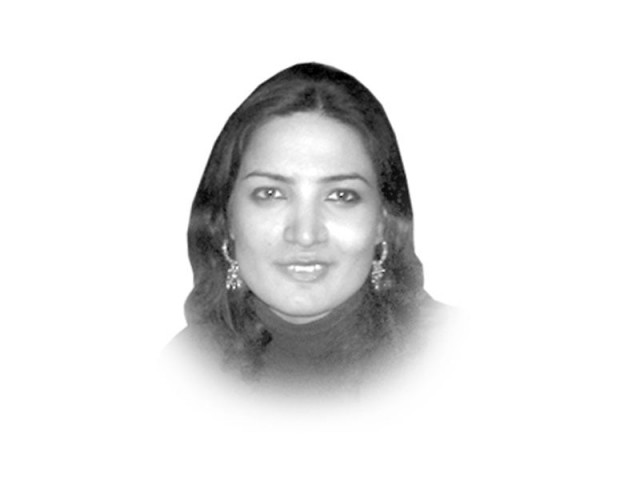A woman’s clothing is her own business
First lady positioning hijab with better motherhood, family life put women not wearing it in uncomfortable situation.

A woman’s clothing is her own business
The first lady of Pakistan, during the aforementioned conference, exhorted Muslim women to wear a hijab, saying that women could do what they wanted as long as they respect the “limits set by Islam”.
The first lady’s speech encourages women to follow the limits set by Islam but no one can agree on what it entails; one school of thought believes that there should be no hindrance to anyone’s education — including women — while the other believes that women should only be allowed access to education if there are segregated educational institutions for them, right up to higher education. Another school of thought believes that women need no access to higher education as their true calling lies in maintaining a household and raising children. If the speech of the first lady is carefully viewed, perhaps, she supports the third version of ‘limits set by Islam’. In her speech, she urged women to strengthen the family unit, which she said was central to Islamic teachings. As if this was not all, she also deplored that Pakistani women were starting to forget how important family and hijab were.
For starters, there is no direct relationship between a woman’s hijab and her caregiving responsibilities towards her family. Secondly, Pakistani women have not forgotten how important family is for them. If anything, family interferes with their performance at work because of the overwhelming demands by families for their time. Thirdly, positioning hijab with better motherhood and a more fulfilled family life puts the women who do not wear hijab but are just as — if not more — concerned about their families, in an uncomfortable situation. If such views gain official state patronage, it can and will act against the women who do not abide by this particular view.
The first lady ended her speech by calling Fatima Jinnah and Benazir Bhutto “role models” for Pakistani women. However, she failed to point out that neither Benazir Bhutto nor Fatima Jinnah followed those particular limits she so favoured in her speech. Both Ms Bhutto and Ms Jinnah were highly educated women who studied with men; they did not limit themselves to raising children and families and had highly visible political careers. Ms Jinnah was so dedicated to her political career that she did not even marry and have a family of her own and Ms Bhutto was back in her office a fortnight after giving birth to her second child. Last but not the least, neither woman wore a hijab but favoured the traditional Pakistani dupatta.
There are many issues that plague Pakistani women that can do with the attention of the first lady; it would be advisable if she focuses on those issues instead of the hijab/dupatta debate.
Published in The Express Tribune, September 18th, 2012.















COMMENTS
Comments are moderated and generally will be posted if they are on-topic and not abusive.
For more information, please see our Comments FAQ